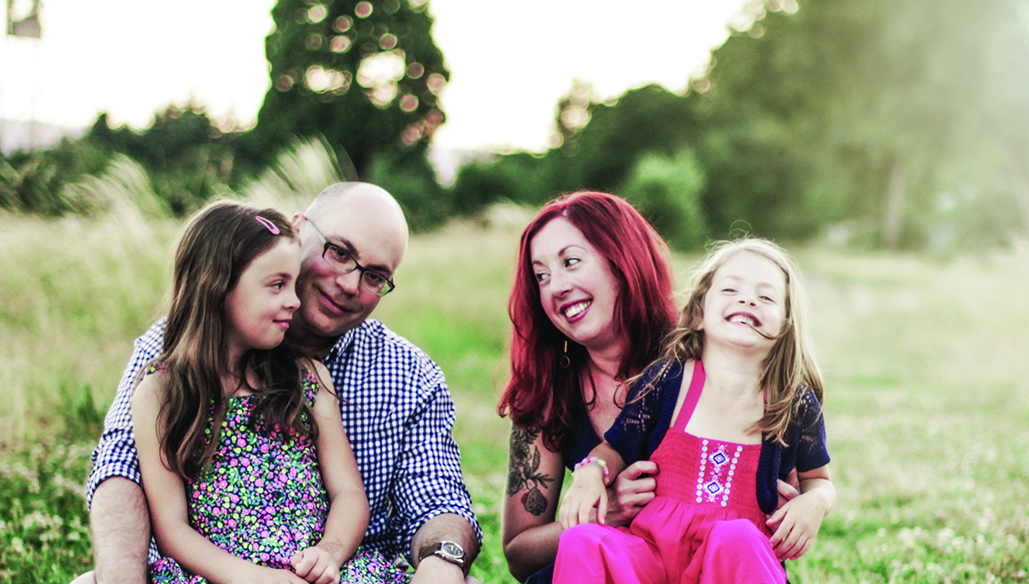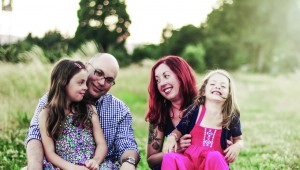

by Annagrace Kaye
People are usually surprised to find out that we homeschool. We don’t look like the homeschoolers in stories or the homeschooling family that used to live next door to you. My daughters, eight and six years-old, are friendly, outgoing and easily discuss their favorite books, movies, and sports. They have big dreams for their futures, which may or may not involve college, or the care and keeping of dragons. I am a doula, who teaches pregnancy and birth classes, and I have a relatively normal, by Portland standards, number of tattoos. I am outspoken about women’s health issues and am raising my daughters to be unashamed feminists. My husband received a K-12 public education and comes from a family who taught him to stay open to new ideas and beliefs. He is Group Scoutmaster for 45th Columbia River in Baden-Powell Service Association, an allage, co-ed, and non-discriminatory scouting organization. In other words, we are not the stereotype by a long shot.
I can appreciate the stereotype because I’ve lived it. I was raised in the 1980s and ‘90s religious homeschool movement. Contrary to what many people believe, homeschooling didn’t start out as a religious backlash to secular society. In the 1970s, John Holt, Raymond Moore, and other educators were questioning a perceived ‘oppressive’ classroom system they saw as primarily creating compliant laborers. It wasn’t until the 1980s that fundamentalist Christians started joining the movement. They did so in large numbers and with encouragement from leaders like James Dobson of Focus on the Family. My experience was similar to a lot of kids from that era; I was very sheltered, I had a pretty good elementary education, and was taught that public schools were spreading evolution and lies. Later on my family ended up getting involved with intense religious leaders who were abusive and controlling. I was more than happy to leave that culture, and on the rare occasions I thought about having children someday, I looked forward to offering them a sane and free childhood, with more options than I’d had.
It was a big surprise to our friends and family, and also me, when we started exploring home education for our girls. I quickly discovered that there were lots of families like us, believing that children thrive with more freedom to explore and create, not less, and who weren’t necessarily interested in it for religious reasons (or for that reason alone). We realized just how little time it takes to cover the basics (reading, writing, and arithmetic) when there are just a few children instead of 25-30, and how much learning can be incorporated into the rhythms of daily life. The most overwhelming part was sorting through the diverse number of curriculums and approaches. This surprised us too. From Classical to Charlotte Mason, Unschooling (or Life Learning) to Montessori, Waldorf to Thomas Jefferson, Internet Schooling to local co-ops and school district supported programs, it turned out there is no one way to homeschool. A lot of people assume that homeschoolers are simply recreating a traditional school day at the kitchen table and I wholeheartedly agree when they ask, “Why would you do that?” Indeed! Another realization took us longer; homeschooling doesn’t have to cost a lot of money. There are free or low-cost resources everywhere. The library, museums, nature and wildlife preserves, educational websites, Netflix, and YouTube are just a few of the ways we learn at our house. We are not afraid of technology— it’s simply another tool.
If you’re interested in how to get started, every state has a homeschool organization which can inform you of current laws and requirements. There are Facebook and Yahoo groups, websites, and also blogs written by homeschooling parents from a diverse array of backgrounds and philosophies. Though local churches often host homeschool groups and co-ops, there are many secular homeschooling families and groups, too. Oftentimes, just like when choosing a school, parents are initially drawn to a certain home education philosophy only to find that their child does better with a different approach. Staying open and flexible has been invaluable to our enjoyment and success. As my friend and fellow homeschooling mother Chris says, “Therein lies the beauty of homeschooling. It has less to do with “school” and more to do with a philosophy of an integrated life of learning, loving, and parenting your children. It becomes your way of life.” For additional resources, see here.
Annagrace Kaye CD(DONA) is a birth and postpartum doula in Vancouver, WA. She also leads Sacred Pregnancy classes for women and couples. coradoula.com

